Team
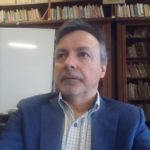
Mário Santiago de Carvalho
Mário Santiago de Carvalho (1958) is Full Professor of Philosophy at the University of Coimbra and Scientific Coordinator of the R&D Unit, Instituto de Estudos Filosóficos (IEF). Author of several books and papers related to his main philosophical fields of research – Portuguese Aristotelianism, Medieval Philosophy, Metaphysics and Philosophy of Music – he has taught at other Universities, in Portugal and abroad, has translated Greek and Latin philosophical texts, and is currently supervising the bilingual edition of the Commentarii Collegii Conimbricensis Societatis Iesu.
Editor
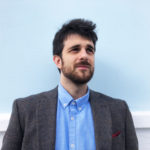
Simone Guidi
Associate Editors

Cintia Faraco
Cintia Faraco graduated in law at the University of Naples “Federico II” and got a Ph.D. in Philosophy of Social Sciences and Symbolic Communication (University of Insubria). For some years she has been working in the scientific research team of Professor Vanda Fiorillo, Full Professor of Political Philosophy in the Department of Political Science at the University of Naples “Federico II”. Her area of research focuses on the Second Spanish Scholasticism, with a special interest in the philosophical-political and theological-political thinking of Francisco Suárez and Gabriel Vázquez. Her publications include: Obbligo politico e libertà nel pensiero di Francisco Suárez, FrancoAngeli, Milan, 2013; Francisco Suárez, Trattato dell’opera dei sei giorni. V. (Chapters I-II) -VII-VIII-IX-X-XI-XII), translated text, edited and revised by Cintia Faraco, Artetetra Edizioni, Capua, 2015; Between wisdom and political realism: machiavelisms by Francisco Suárez, in «RphZ. Rechtsphilosophie Zeitschrift für Grundlagen des Rechts, 3/2016; Suapte natura. L’intrinseca forma razionale della natura: Gabriel Vázquez, FrancoAngeli, Milan, 2017.

Katja Krause
Katja Krause is a historian of science and medicine, and a philosopher specializing in medieval thought and beyond. She received her Ph.D. in 2014 from King’s College London for her dissertation entitled Aquinas’ Philosophy of the Beatific Vision: A Textual Analysis of his Commentary on the Sentences in Light of its Greek, Arabic, and Latin Sources. After her doctorate, Krause was awarded a two-year Postdoctoral Fellowship at the Max Planck Institute for the History of Science, where she worked on a series of articles that examine the empirical turn of the thirteenth century that emerged from the appropriation of Averroes’ commentaries on the corpus Aristotelicum. In 2016/17 she served as Assistant Professor in Medieval Thought at Durham University, UK, and in 2017/18 was a Postdoctoral Fellow at Harvard Divinity School, supported by the Deutsche Akademie der Naturforscher Leopoldina – Nationale Akademie der Wissenschaften. Krause is currently Leader of the Max Planck Research Group “Experience in the Pre-Modern Sciences of Soul and Body, ca. 800-1650,” jointly with a professorship at the Technische Universität Berlin. She is currently working on a book project, which is concerned with the notion of experience in medieval and Renaissance sciences of the living world.
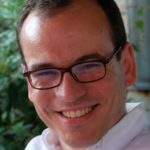
Cristóvão Marinheiro
Cristóvão S. Marinheiro graduated at the Johann-Wolfgang-Goethe Universität in Frankfurt and got a Ph.D. in History of Philosophy at the Université Paris IV-Sorbonne on Antonio Bernardi (1502-1565) in 2010. He was appointed Research associate (engenheiro técnico de investigação) at Coimbra University between 2004 and 2005, where he worked on the commentary on Physics by Manuel de Góis. He was Junior researcher at the Université de Luxembourg between 2005 and 2009 and lecturer at the Universität des Saarlandes between 2009 and 2014. Since 2016 he works at the Bibliothèque nationale de Luxembourg in the Rare books and manuscript Department. He has published several articles on XVIth century Aristotelianism.

Anna Tropia
Assistants
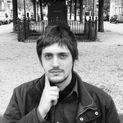
Robert Martins Junqueira
Robert Martins Junqueira is a research fellow and serves as a science, technology, and innovation manager at the Institute for Philosophical Studies of the Faculty of Arts and Humanities of the University of Coimbra, where he graduated in Philosophy. He holds a post-graduate qualification in Science and Technology Management and Policies, obtained at the NOVA School of Social Sciences and Humanities, in Lisbon. At the present time, Robert is developing doctoral research on the history of semiotics.
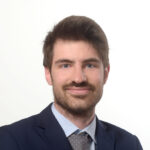
Roberto Zambiasi
Roberto Zambiasi is a PhD student in History of Medieval Philosophy (Università di Torino and École Pratique des Hautes Études, Paris). His research focuses on Latin Aristotelian natural philosophy in the 13th and 14th centuries (hylomorphism, theories of perception, ontology of sensible qualities), but he also has a strong interest in the evolution of Latin Aristotelian natural philosophy in the Renaissance and the early modern period.